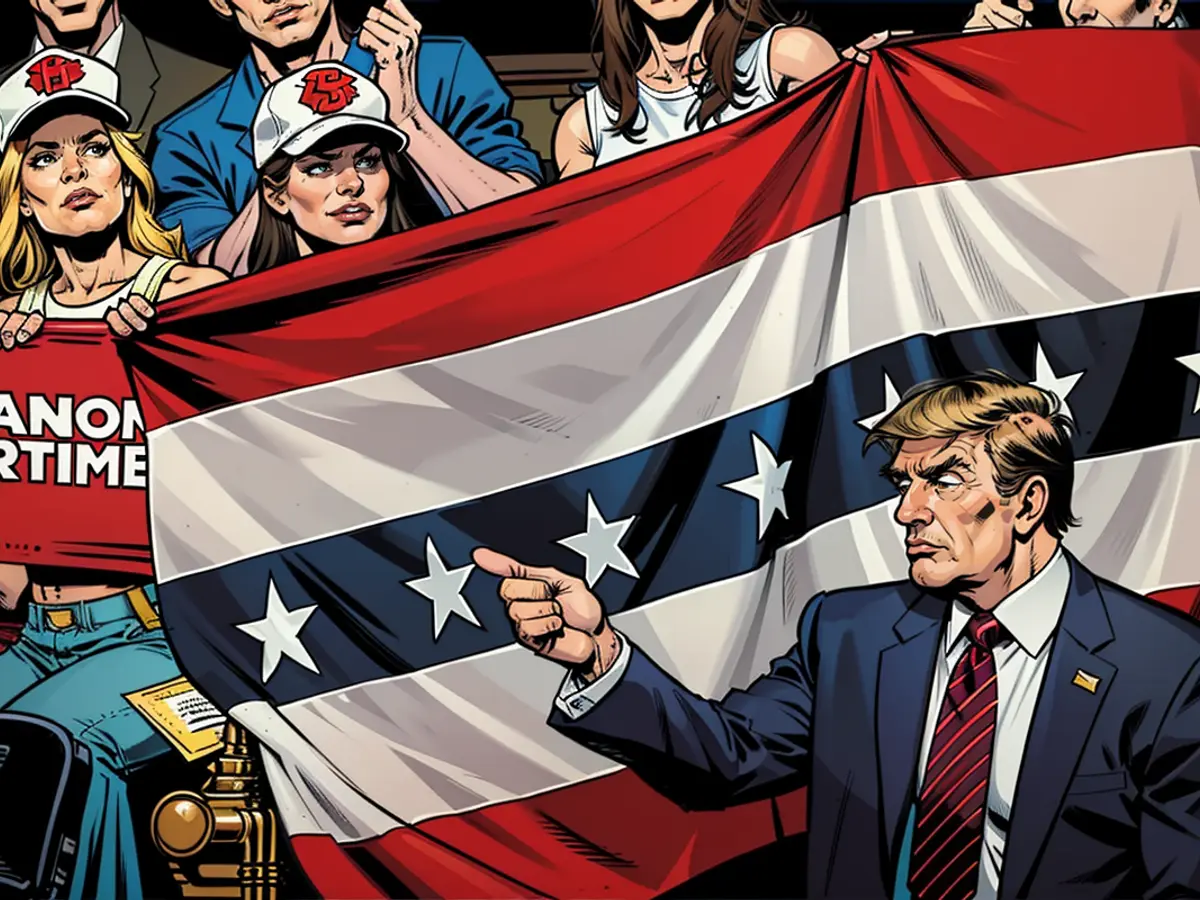Financial experts are labeling Trump as the monarch of inflation.
Leading economic analysts concur: If Donald Trump ascends to the presidency, inflation rates, the U.S. budget deficit, and interest rates are anticipated to skyrocket noticeably more than if Kamala Harris emerges victorious. This is primarily due to the Republican Party's grand spending spree, which is unprecedented in scope.
Inflation has been on a downward trend for some time, and the economy is expanding. Nevertheless, numerous voters continue to view the economic climate as bleak. The experience of skyrocketing prices during the Covid pandemic and the Ukraine conflict in recent years has left a lasting impression on many. The highest inflation rates in four decades continue to linger in the collective mindset.
Under such circumstances, it's unlikely to be favorable news for Donald Trump in the closing days of the campaign that prominent economists now forecast a repeat of the price surge under his administration: A majority of economists polled by the "Wall Street Journal" (WSJ) anticipate significantly higher inflation rates, interest rates, and U.S. budget deficits under a second Trump term compared to a Harris presidency.
Of the 50 economists, academics, and Wall Street professionals surveyed, 68% anticipate prices to increase more under Trump. Only 12% believe that inflation will rise more under Harris. The remaining 20% do not see a substantial difference between Trump and Harris in this regard.
Tariffs as the "Trump Tax"
The previous survey in July painted a much more balanced picture: At that time, only 56% of the researchers saw Trump as a greater threat to consumer prices. The fact that economists are now significantly more united in this view is largely due to the program that Trump has since made his own: "Since July, it has become clear to us that Trump is even more opposed to free trade than Harris," the WSJ quotes an economist.
Since the summer, Trump has threatened general tariffs of 10 to 20% on all U.S. imports. In addition, there are draconian tariffs of 60% or more on all Chinese imports. Trump intends to safeguard U.S. manufacturers from low-cost foreign competition with these tariffs. Unfortunate for the voters who will determine his fate in the coming weeks, they will ultimately bear the cost of these tariffs. Because, as studies on the tariff hikes during Trump's first term have shown, importers merely passed on the higher expenses to companies and households.
Kamala Harris has for a long time labeled Trump's tariff plans as the "Trump Tax," estimated to cost the average American $4,000 per year. "If tariffs function as economists assume they will, people should prepare themselves for an unwelcoming surprise," the WSJ quotes an economist from Rabobank. If economists now unanimously crown Donald Trump as the inflation maestro, it could potentially harm the Republican in the remaining three weeks before the election.
Despite the debated benefits of Trump's proposed tariffs, 59% of surveyed economists believe they will result in fewer, not more, jobs in the U.S. within 3 to 5 years. Meanwhile, Trump's policies are expected to bear substantial costs: 65% of experts now concur that they could expand the U.S. budget deficit. In contrast, July saw only 51% of respondents agree with this view.
During his campaign, Trump promised not only drastic tariff increases, increased military and border security spending, and substantial tax cuts, including the elimination of taxes on pensions and overtime, as well as reduced taxes for Americans abroad, the ultra-wealthy, and corporations. The US think tank Committee for a Responsible Federal Budget estimates that under Trump, U.S. debt could increase by an additional $7.5 trillion - more than double the increase under a potential President Harris.
By 2035, U.S. debt could potentially reach 142% of GDP, a historical high. American citizens under Trump can also anticipate no reprieve from financial markets: economists universally agree that rising inflation and exploding deficits will send interest rates soaring higher under Trump than under Harris. 61% of economists concur with this view.
In light of the economists' forecasts, the rising inflation rates and budget deficit under a second Trump term might not be seen favorably by voters, especially considering the "Trump Tax" and its potential impact on consumer prices. The majority of economists believe that imposing higher tariffs on imports could lead to fewer jobs and an expanded U.S. budget deficit, ultimately resulting in soaring interest rates under Trump.








